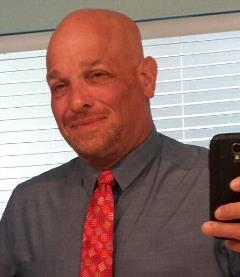 The following questions are from an interview in 2014:
The following questions are from an interview in 2014:
Q1: Describe your current position/role.
Tony currently holds two positions: Chief Engineer for SE&I and Project Manager (PM) for SAFER. In his role as the Chief Engineer for SE&I, he is responsible for technical oversight, SE leadership, SE training, software life cycle reviews, and policy/procedures. In his role as the PM for SAFER, Tony transitioned to an integrator. He performs integration efforts for five NASA JSC Engineering Directorate divisions. His responsibilities include integrating propulsion, mechanical design, avionics, power, software, CE, and pyrotechnics on an EVA system with a human safety mission.
Q2: What are one or two of your proudest professional accomplishments?
Tony is proud of being a former Commander for the Space Operations Squadron at Air Force Space Command, leading SE & PM for SAFER, and the successful delivery of Jet Pack and Space Flight Units.
Q3: What is the biggest challenge you face as a Systems Engineer?
Finding ways to articulate the value and the roles for SE in ways that are compelling to project and management teams is the greatest challenge that Tony faces. These teams often see SE as paperwork efforts that are a tax and do not contribute to system capability. Tony also notes that given stringent certification requirements for human spaceflight, confusion sometimes exists between certification driven efforts (e.g., requirements definition and verification to support certifications), and efforts to define requirements for the right performance and functional characteristics (e.g., the right set of verifications to truly address them). The result is a dynamic tension between testing and analysis needed for certification, and testing and analysis needed to prove that the system actually performs as desired.
Q4: What advice do you have for individuals starting their career as a Systems Engineer?
Tony advises that new Systems Engineers learn as much as possible about what each of their colleagues are doing and how they do it, as if to learn their job. There is a perspective that the best prep for Systems Engineering is working first as a specialist such as mechanical, electrical, design, analysis, etc., and then broadening to see the full system. That is tough to do for an individual starting their career as a SE, so the next best thing would be to really understand as much as possible about how all the team elements function, limiting factors, and “day in the life.”
Q5: How do you continue to learn about SE? What professional development activities do you do?
Teaching is Tony’s preferred method of learning. He has taught many classes at Jacobs and taught a three-class series in Systems Engineering as part of a Master’s Program in Project Management at the University of Houston. He has also found that preparation for the Project Management Professional (PMP) certification highlighted significant overlap between SE and PM tasks, sometimes harmoniously, and sometimes not. Tony also engages with the local INCOSE chapter and sometimes participates with AIAA Systems Engineering TC and the JSC SE Forum.
Q6: What are the next career goals you want to achieve?
Tony hopes to one day become a chief engineer on a large complex project, such as a spacecraft or robotic probe.
Q7: What are some of your hobbies/interest outside of work?
Tony enjoys volleyball, outdoor activities, cycling in the MS-150, triathlons, and obstacle runs. He also plans to participate in a longer triathlon or a triathlon with his daughter.
In 2021, we reached out to Mr. Williams to answer more questions:
Q8: Why did you decide to get the SEP certification?
I took on a new role as the Chief Engineer, SE&I at Jacobs supporting NASA-JSC and saw the SEP as a win-win opportunity across a number of areas. 1st, the NASA SE handbook is very parallel to the INCOSE SE Handbook, and as such, a SEP cert demonstrates my knowledge of the NASA SE Handbook as well as INCOSE. 2nd, SEP cert ensures you know the 'language' - many SE processes can be described in a variety of ways, SEP cert ensures you can speak the same language as other SEPs. I knew that having the SEP would make more credible as I offer SE advice and recommendations both within Jacobs and within NASA.
Q9: How does the SEP certification impact your professional career?
It's given me an additional level of credibility in my professional interactions, within the company, with customers, and within the industry.
Q10: What has surprised you in the past five years related to systems engineering?
The recent Space Exploration initiatives within NASA (Lunar landings, Commercial landers, Lunar space stations) have dramatically increased the need for, and the respect for the SE viewpoint.
Q11: What job titles have you had other than “Systems Engineer?”
Project Manager, Commander, Space Operations Officer.